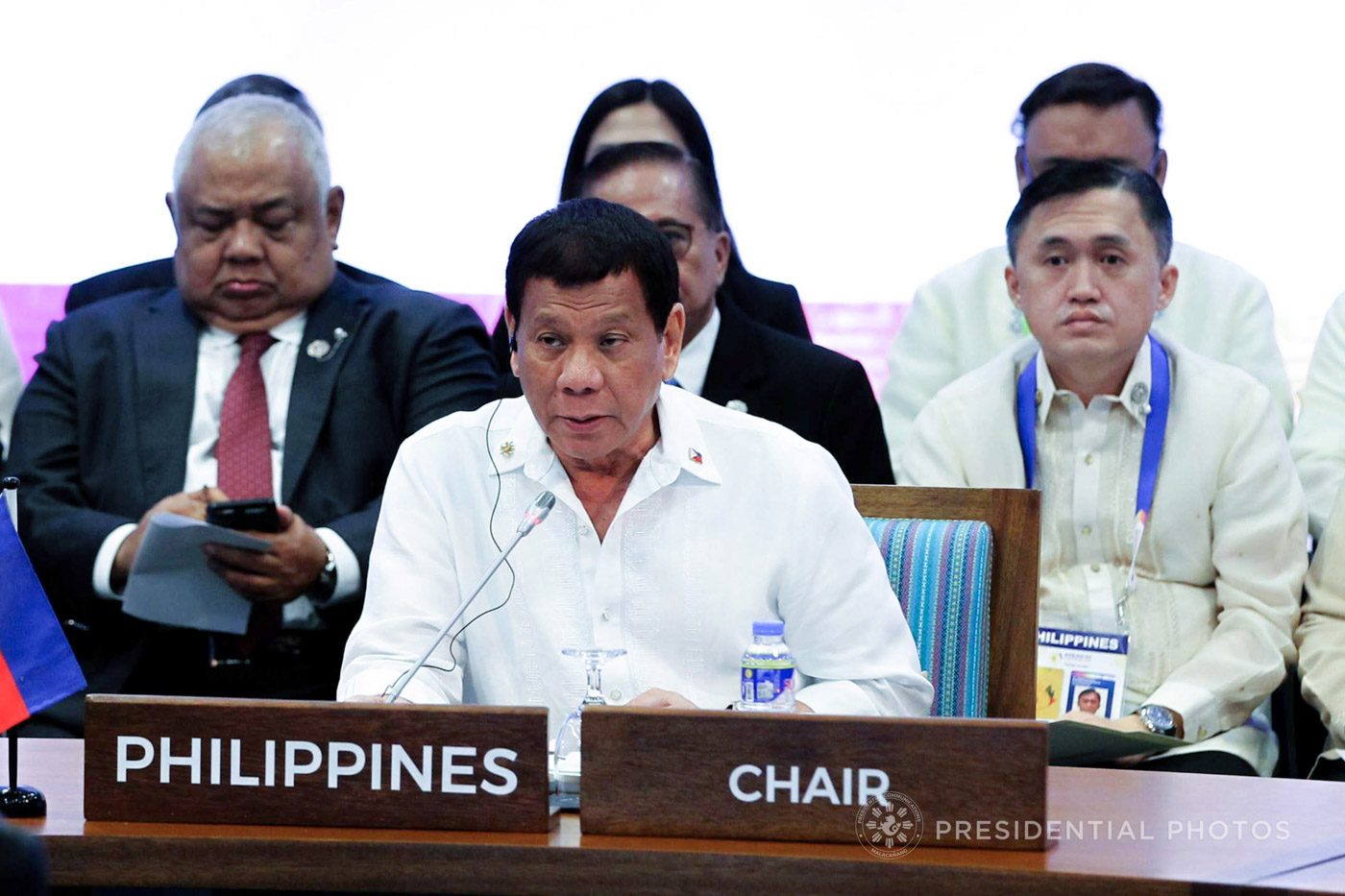SUMMARY
This is AI generated summarization, which may have errors. For context, always refer to the full article.

MANILA, Philippines – The Association of Southeast Asian Nations (ASEAN) avoided hitting China in the Chairman’s Statement it issued Thursday morning, November 16, as it noted the “improving relations” between Southeast Asian nations and their powerful neighbor.
This statement is softer than previous ASEAN Chairman’s Statements that tackled the disputed South China Sea.
The ASEAN Chairman’s Statement, the most important document issued by ASEAN after every leaders’ summit, evaded reference to China’s militarization of the disputed waters.
Instead, ASEAN vaguely cited the need for “non-militarization and self-restraint.”
It also emphasized the 2002 Declaration on the Conduct of Parties in the South China Sea (DOC) and the 1982 United Nations Convention on the Law of the Sea (UNCLOS), two documents that stress the need for peace in disputed waters.
The ASEAN Chairman’s Statement said, “We likewise reaffirmed the importance of maintaining and promoting peace, security, stability, maritime safety and security, rules-based order and freedom of navigation in and overflight above the South China Sea.”
“In this regard, we further reaffirmed the need to enhance mutual trust and confidence, emphasized the importance of non-militarization and self-restraint in the conduct of all activities by claimants and all other states, including those mentioned in the DOC that could further complicate the situation and escalate tensions in the South China Sea, and stressed the need to adhere to the peaceful resolution of disputes, in accordance with universally recognized principles of international law and the 1982 United Nations Convention on the Law of the Sea (UNCLOS),” the statement added.
The statement was released at around 11:05 am on Thursday, more than 24 hours after the ASEAN Summit ended.
In the summit last April, the Chairman’s Statement was out the morning after the summit ended. In Laos in September 2016, the same document was released shortly before the closing ceremonies.
Softer than previous statements
This year’s ASEAN chair – the Philippines, under President Rodrigo Duterte – is a claimant country in the South China Sea, but has downplayed its claim over parts of the disputed waters, for the sake of boosting ties with Beijing.
In contrast to the Chairman’s Statement issued on Thursday, the Chairman’s Statement issued on April 30 “took note of concerns expressed by some leaders over recent developments” in the South China Sea.
At that time, China was the biggest country building military facilities in the South China Sea. It was the main cause of the “recent developments” mentioned in the April 30 statement.
Thursday’s statement was vague and did not cite any of these “recent developments.”
The ASEAN Chairman’s statement a year earlier, when Laos was ASEAN chair, was much stronger.
Issued in September 2016, the ASEAN Chairman’s statement in Laos said: “We remain seriously concerned over recent and ongoing developments and took note of the concerns expressed by some Leaders on the land reclamations and escalation of activities in the area, which have eroded trust and confidence, increased tensions and may undermine peace, security and stability in the region.”
The latest Chairman’s Statement comes after ASEAN and China announced the start of negotiations on a Code of Conduct (COC) in the South China Sea.
This was the biggest milestone for the past 15 years in crafting a COC.
The latest ASEAN Chairman’s Statement said: “We discussed the matters relating to the South China Sea and took note of the improving relations between ASEAN and China and, in this regard, are encouraged by the adoption of the framework of the Code of Conduct for the South China Sea (COC), which will facilitate the work and negotiation for the conclusion of a substantive and effective COC.”
ASEAN described this as a “positive momentum.” – Rappler.com
Add a comment
How does this make you feel?
There are no comments yet. Add your comment to start the conversation.